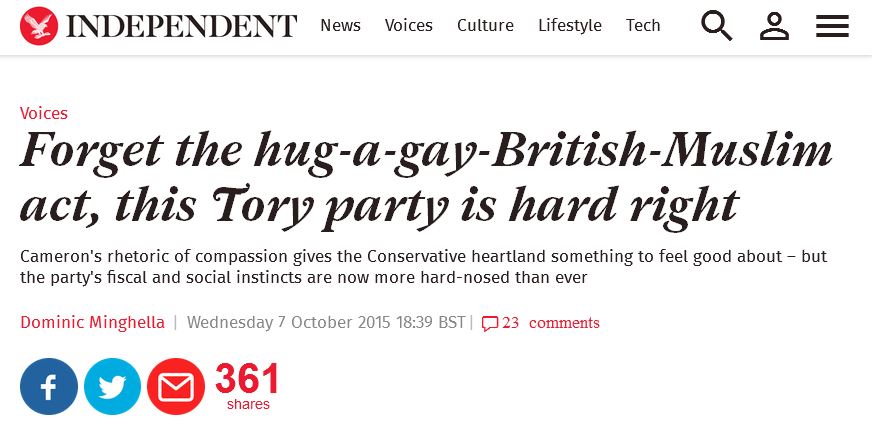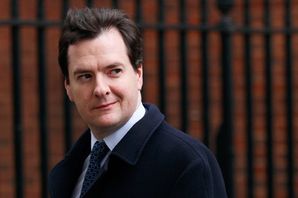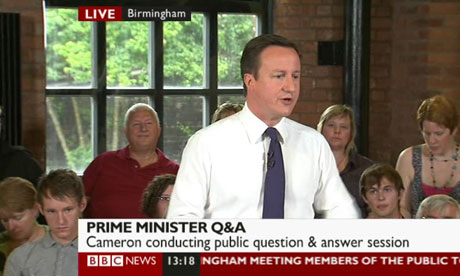My reaction to Cameron’s speech to the Conservative Party Conference, 2015, for Independent Voices.
In case the link expires, text below.
David Cameron, in his first conference as leader of a majority Tory government, just gave a speech which could have been delivered by Tony Blair.
He launched “an all-out assault on poverty”. He bemoaned the impossibility of “true opportunity” without meaningful equality. He berated our woeful record on social mobility. The incapacity of our justice system to rehabilitate. And of course the inability of a whole generation to get on the property ladder.
The BBC’s Political Editor, Laura Kuenssberg, took to the airwaves excitedly to report that Cameron had driven the Tory tanks right across Labour’s lawn.
Twitter went all a-giddy with #HeirToBlair hashtags and reminders that Cameron’s exit song, Don’t Stop Thinking About The Future, was Clinton’s in ’92.
But there is no chance of Cameron delivering on his rhetoric. The imminent removal of tax credits (not remotely compensated for by a ‘living wage’ down the line) is an assault not on poverty, but on the working poor.
Judging from her chilling, old-school speech to Conference yesterday, Theresa May’s new Immigration Bill will not be a pretty sight. The chances of Blairite centrism there, if you’ll forgive the paraphrasing, are “at best, close to zero”.
Ian Duncan Smith “welcomes” food banks, which is just as well because his government has presided over a dramatic rise in their use. Nothing Blairite there, either. And as for the heartlessness of Atos and incapacity benefit, it would have been funny if it hadn’t so often been tragic. Atos staff had to be equipped with panic buttons, so dreadful was their work. Is the new Atos, American outfit Maximus, suddenly going to go all cuddly under a Tory majority government? Don’t hold your breath.
And the idea that this administration, with its out-of-the-ark ideas like Right To Buy 2.0, will succeed where every recent government has failed, and actually make headway on housebuilding, is, frankly, laughable.
No. These are politicians who may talk centre, or even centre-left, but who deliver right, or even far-right.
So what’s going on? When Cameron talks his One Nation talk, is he deluding himself, or is he dissembling?
His delivery is such that the former explanation is credible. To hear him is to believe him. He seems really to think he’s a One Nation “modern” Tory. The guy who, for example, pushed through gay marriage. It is tempting to think of Cameron as a decent chap struggling to wrangle – and front – an unruly and hard-hearted right. Heroically dragging them into the centre for their own and our country’s good. One Twitter commentator felt that Cameron’s speech was as much a sell to his own right wing as it was to centrist voters. On this reading, Cameron is not so much lying about moving his party into the “common” ground, as hoping.
Could be. But step away from the charming, plausible delivery – mute the speech and just think about the big picture, just see the man talking – and the well-meaning interpretation seems the less likely of the two.
Cameron is a smart man, a First-in-PPE man. He is a consummate politician. And just because his government no longer enjoys the fig-leaf of the LibDems, it doesn’t mean that he and Osborne have not learnt the political lessons forced on them by coalition.
What they did in the last Parliament was genius. Squeezing the pips out of the working poor? Confuse debate with a promise to raise the tax threshold to £10k “benefiting everyone” (but not, in fact, the poorest 10%). Whacking up tuition fees? Confuse debate with an improved deal for the very poorest students. In this Parliament, it continues. Hammering the tax credits of the working poor? Confuse debate with a living wage which in no way plugs the gap.
In this sense, the One Nation rhetoric serves a purpose once achieved by sops (apparent or real) to the Tories’ coalition partners. It diverts attention away from harsh truths. It dilutes headlines and ruins sound-bites. It drowns regressive policy in progressive noise. It is a magician’s hand, waving here, waving here – so that we don’t look there.
It doesn’t just impair clear-sightedness about the actual policies. The Blairite rhetoric hurts Labour by pushing it further to the left as it seeks to differentiate itself. We know that it has been a favourite ploy of Cameron and Osborne for a while now to try and force Labour to choose between endorsing Conservative policy, and opposing it and shifting further and further left; the Tories win in either event. (The recent failure of Labour under Harriet Harman to oppose welfare reforms being a classic example.) These modern Tories are nothing if not master tacticians.
Better still, the rhetoric of compassion gives the Tory heartland something to feel good about. If their fiscal and social instincts are hard-nosed, they are nevertheless people who want to feel their underlying motivations are just. Their medicine may be bitter, but it is because (sometimes at least) they genuinely think that a smaller state, and the individualism that goes alongside it, will produce a happier, wealthier society. A Prime Minister who can help them to feel good about their faith, who can help them to rebrand mean-spiritedness as greater-good generosity… that’s a Prime Minister who deserves a two-minute standing ovation.
As the curtain closes on #CPC15, delegates can go home safe in the knowledge that the policies which their leader’s rhetoric entails are never going to transpire. There is nothing but steel in the men and women standing behind Cameron. There will be no woolly-minded Blairism from May or Duncan Smith or Gove or Nicky Morgan – and certainly not from Osborne.
The true legislative agenda – and the in-government track record – is protected behind smoke and mirrors. Labour is pushed into a corner. And Conference’s conscience is absolved by the soft, centrist, hug-a-gay-British-muslim words of their front man.
The Prime Minister would have us believe the future is a great British take-off. Others may fear his rhetorical stroll in the centre ground is nothing but One Nation Misdirection.
Either way, the party faithful will sleep well in their beds tonight.




